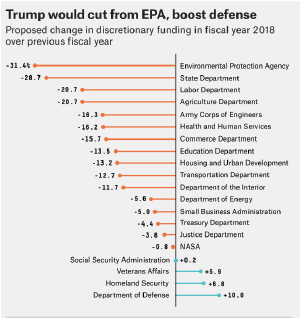By Ellen Garnett
Staff Writer
Over 100 years ago, John Simmons founded Simmons College in 1899. This year, the College has expressed a renewed interest in becoming a university. The interest coincides with various initiatives underway at Simmons, such as the academic redesign and the pursuit of real estate for the Park Science Building.

In February, the Simmons Board of Trustees made the decision to pursue a name change via the state approval process, which will take between six and nine months. During this time period, Simmons’ formal application will be reviewed by the Massachusetts Secretary of State’s Office, the Attorney General’s Office, and the Department of Education.
“This is a natural milestone in our evolution and our progress,” read one of the key points in the Simmons Board of Trustees’ frequently asked questions (FAQs) on March 1, 2017. The FAQs go on to explain the main reasons behind the name change.
“‘University’ reflects the reality of who we are, and what we have become: a small, vibrant, comprehensive institution of higher education for undergraduate and graduate study,” read the FAQs. “The use of the word ‘university’ clarifies, rather than changes, our identity. We are a university by any measure, with fully engaged graduate students, and we have more graduate students than undergraduate students.”
The FAQs identify the difference between a college and a university, where a university consists of several colleges with a range of undergraduate and graduate degrees whereas a college typically offers bachelor’s and associate’s degrees. To put this into context, in fall 2016, Simmons enrolled 1,594 undergraduate students, 5,293 full and part-time graduate students, and 2,736 online graduate students, according to the FAQs. If Simmons were to become a university, Simmons College would maintain its title, but live under the umbrella name of Simmons University, much like Harvard College is the undergraduate college of Harvard University.
However, the name change would not affect the culture of Simmons College with its small class sizes and close faculty-student relationships, according to Cheryl Howard, vice president of Communications, Diversity & Inclusion at Simmons.
“If we change our name to Simmons University, we will maintain all of the positive aspects of Simmons College including the highest teaching quality, personal attention from faculty and staff, small classes, and an inclusive community environment. These things will definitely not change because we know they are the core of what makes Simmons special to students, faculty, staff and alums.
“Although Howard indicated that the proposed name change would not alter the culture of the College, Simmons alumnae have mixed feelings about this new development of their alma mater.
Alison Berstein, Class of 2016 alumnae of the Communications Department, shared her thoughts about Simmons and the name change.
“Simmons means everything to me. I know that’s cliché, but I have so much Simmons pride and will forever have it,” said Berstein.
“I repeated ‘Simmons University’ out loud to myself several times to think about this question. It has a different ring than Simmons College,” said Berstein. “That doesn’t necessarily mean it’s good or bad, just different. If the Simmons administrators do decide to go through with this decision, I really hope they would keep the small class sizes…the best they can. The prospect of small classes and the notion of being women’s-centered are what drew me to Simmons initially. There’s something really special about a women’s-centered learning environment. I’ve always called it ‘unspoken camaraderie.’”
A Simmons alumna whose 50th class reunion is approaching wished to remain anonymous, but expressed frustration at the name change. She pointed out that many of her fellow alums want the college to remain the same and that there is already a Simmons University in Texas—Hardin-Simmons University. There is also a Simmons College of Kentucky, which is the nation’s 107th Historically Black College.
While this formal application is under review, the Administration plans on hosting info sessions to inform the community of the benefits of the change, to listen to concerns, and to answer questions.















Bill Tarkulich • Mar 30, 2017 at 10:04 pm
Ah, another succumbs to the higher ed arms race. Reminds me of Stowe Ski resort. For decades they resisted trail count inflation, while the competition designated one actual trail with three separate names, upper, middle and lower. Perception is everything. With Killington pronouncing the most trails in the east, it was taking away Stowe’s customers. Overnight, Stowe’s trail count went from 55 to 110, without changing a thing on the mountain. Well, maybe the signs.
Putting Simmons aside for a moment, why does every institution have to be a university? Why does everyone need to have a graduate program. What happened to transparency and academic truth?
Why can’t we just do one thing well?
full disclosure: I have no affiliation past, present or future with Simmons. As a neighbor I take a learned interest.